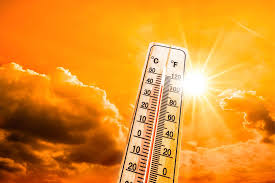
Union Health Ministry Reviews Heat Wave and Fire Safety Preparedness in Virtual Meeting with States/UTs
Dr. Atul Goel, Director General of Health Services (DGHS) of the Union Health Ministry, conducted a virtual meeting with States and Union Territories (UTs) to assess the preparedness for heat wave conditions and fire and electrical safety measures in healthcare facilities across the country.
According to the Indian Meteorological Department’s (IMD) long-range outlook forecast issued on May 27, 2024, above-normal monthly maximum temperatures are expected over most parts of the country in June, except for parts of southern peninsular India. Above-normal heat wave days are likely in Northwest India and adjoining parts of Central India.
The Union Health Ministry has issued several directives to State Health Departments to ensure readiness, including guidelines on strengthening health systems preparedness for heat-related illnesses (HRI), a public health advisory with do’s and don’ts and IEC poster templates, and guidelines on emergency cooling for severe heat-related illnesses.
Additionally, guidelines on autopsy findings in heat-related deaths were distributed to all AIIMS and medical colleges, along with joint communication on health facility fire safety measures from the Secretary (Health), MoHFW, and NDMA. A checklist for assessing health facility and ambulance preparedness to prevent and manage heat impacts was also provided.
States and UTs were urged to implement these measures through letters sent on March 23, 2024, and May 29, 2024. Key steps emphasized during the meeting included the implementation of Heat Health Action Plans, dissemination of early warnings of heat waves from IMD, assessment of healthcare facilities and ambulance preparedness, strengthening surveillance of HRI on IHIP, establishing dedicated heat stroke rooms at all healthcare facilities, issuing health advisories, and planning IEC activities. Sensitization and capacity building of medical officers and healthcare staff on HRI symptoms and management were also stressed.
Regarding fire safety measures, the meeting highlighted the importance of conducting preventive fire risk assessment drills, implementing proper storage of flammable materials, maintaining electrical systems, providing staff training on fire safety protocols and evacuation procedures, installing and maintaining fire detection and suppression systems, and establishing emergency response plans with SOPs for evacuation. Regular mock emergency drills were deemed essential.
State and UT officials are closely monitoring the situation, with notable efforts in several regions. Madhya Pradesh has conducted mock-drill exercises on fire safety in government and private hospitals, coordinating with Urban Administration & Engineering departments. Odisha has established Heat Wave Control rooms, while Uttar Pradesh has launched the DASTAK (Door-to-door) campaign to raise awareness and identified Fire Safety Officers in health facilities. Haryana has allocated funds for essential drugs and logistics, and Rajasthan has equipped ambulances with cooling appliances. West Bengal ensures fire safety certificates and conducts mock drills, while Bihar coordinates with the State Disaster Management Authority to prevent fire incidents. Delhi has issued directives and SOPs for firefighting systems, making fire evacuation plans and systems mandatory in all healthcare facilities, including smaller ones.
Dr. Goel emphasised the importance of these measures to mitigate the risks posed by extreme heat and to ensure the safety and well-being of patients and healthcare workers.